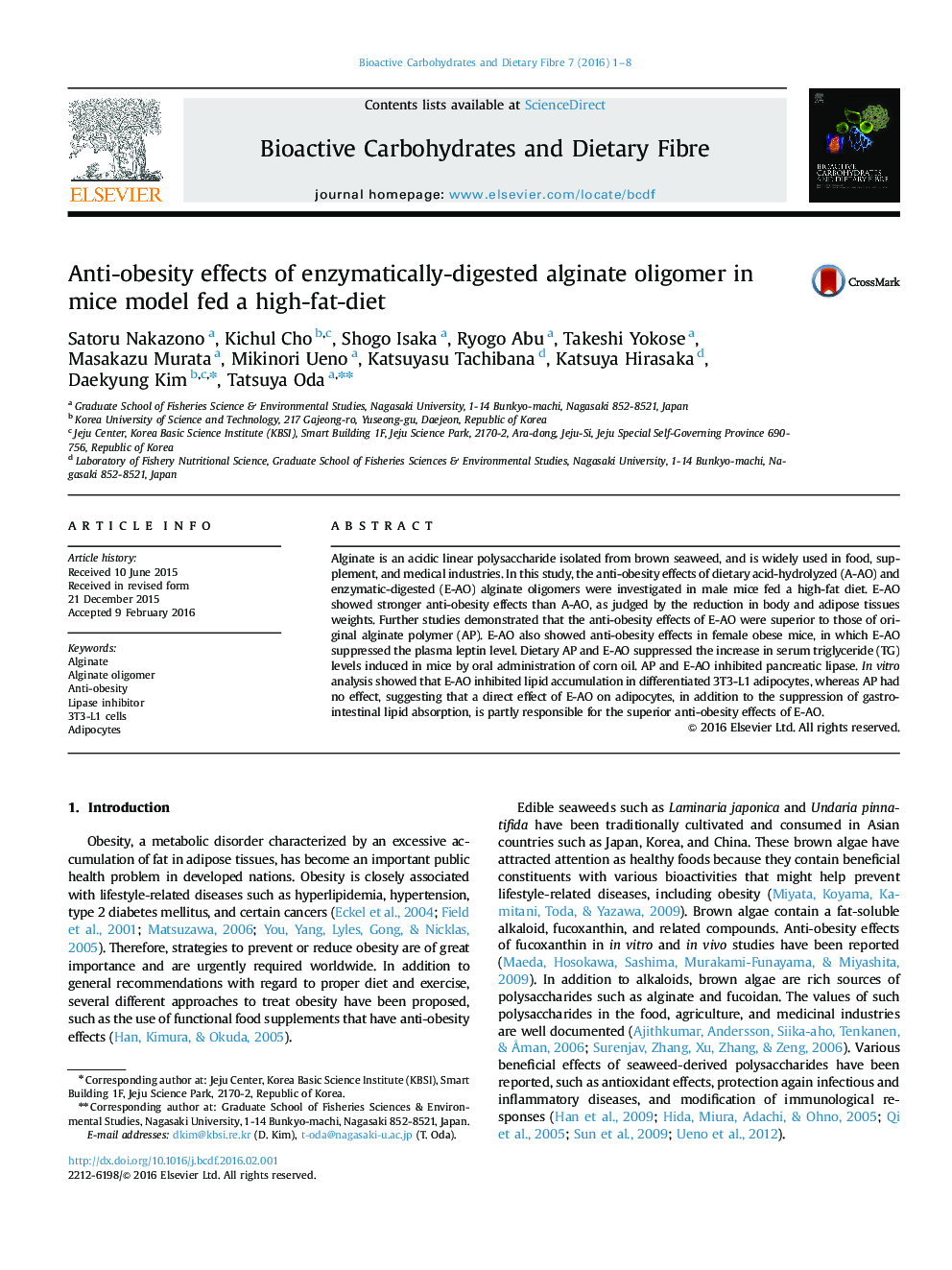| کد مقاله | کد نشریه | سال انتشار | مقاله انگلیسی | نسخه تمام متن |
|---|---|---|---|---|
| 1412962 | 985843 | 2016 | 8 صفحه PDF | دانلود رایگان |
• Enzymatically digested E-AO has anti-obesity effects in mice fed a high-fat diet.
• Acid-hydrolyzed alginate oligomer (A-AO) has no significant anti-obesity effect.
• Original alginate polymer (AP) has no significant anti-obesity effect.
• E-AO reduces serum-leptin level.
Alginate is an acidic linear polysaccharide isolated from brown seaweed, and is widely used in food, supplement, and medical industries. In this study, the anti-obesity effects of dietary acid-hydrolyzed (A-AO) and enzymatic-digested (E-AO) alginate oligomers were investigated in male mice fed a high-fat diet. E-AO showed stronger anti-obesity effects than A-AO, as judged by the reduction in body and adipose tissues weights. Further studies demonstrated that the anti-obesity effects of E-AO were superior to those of original alginate polymer (AP). E-AO also showed anti-obesity effects in female obese mice, in which E-AO suppressed the plasma leptin level. Dietary AP and E-AO suppressed the increase in serum triglyceride (TG) levels induced in mice by oral administration of corn oil. AP and E-AO inhibited pancreatic lipase. In vitro analysis showed that E-AO inhibited lipid accumulation in differentiated 3T3-L1 adipocytes, whereas AP had no effect, suggesting that a direct effect of E-AO on adipocytes, in addition to the suppression of gastrointestinal lipid absorption, is partly responsible for the superior anti-obesity effects of E-AO.
Figure optionsDownload as PowerPoint slide
Journal: Bioactive Carbohydrates and Dietary Fibre - Volume 7, Issue 2, April 2016, Pages 1–8
